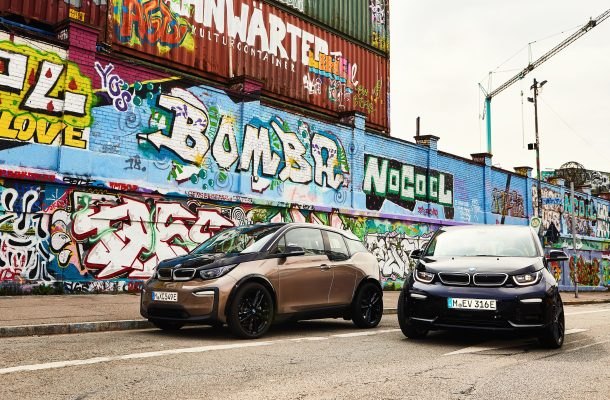#BatteryTech
Couple Learns the Hard Way How the Future of Motoring is Paved With Discontinued Batteries
A couple’s recent experience in Florida highlighted an issue that’s bound to become more prevalent as the motoring world leans into its EV future. After experiencing some issues they took their Chevrolet Volt to a dealer in Cape Coral, Florida. It turned out the Volt had a battery issue, and it could be fixed for $29,842. Welcome to the future.
Nissan Developing Nismo Performance EVs
Nissan has coyly been suggesting that it might someday furnish electrified performance models ever since it released Nismo-badged examples of the humble Leaf for the Japanese market. This was followed by the 2020 Leaf Nismo RC, which served as an experiment to see what would happen if you added a bunch of electric motors in a bid to make the model genuinely fast on a race track.
With the automaker set to deliver 15 new EVs by 2030, there’s been some speculation about how many will boast sporting aspirations. But it looks as though a few might know that Nissan has confirmed its developing Nismo-branded performance electrics for the global market.
Ford CEO Asks Battery Suppliers to Stop Fighting
Battery suppliers LG Chem and SK Innovation have what could be politely described as an intense rivalry. With the automotive industry desperate to secure reliable access to the most essential components for the planned electric vehicle offensive, chemical companies specializing in electronics are very much in demand and they’re all jockeying for power.
On Wednesday, the U.S. International Trade Commission (ITC) sided with LG Chem after it had accused SK Innovation of misappropriating trade secrets pertaining to EV battery technologies. But Ford CEO Jim Farley is asking the South Korean businesses to call a ceasefire and settle things out of court, presumably through the transfer of a large sum of money.
Ford: Battery Plants Would Be Pointless Right Now
If electric vehicles are ever to supplant the tried-and-true gasoline-driven automobile, we’ll need to make a lot of changes. Infrastructure will need to tailor itself to electric driving by implementing more charging stations while bolstering the electrical grid with more power plants and a higher capacity for energy storage. But auto manufacturers will also need to manufacture them at a scale that will adequately feed society, requiring more capable machines — and the batteries they’ll be dependent upon.
While most large automakers have dumped billions into R&D for “mobility projects,” including items pertaining directly toward advancing EVs, their approaches have varied. Some manufacturers (e.g. Tesla) built battery plants to support themselves, others are contented with having made deals with suppliers. Ford has officially taken the latter approach, according to its own leadership.
Can EVs Go the Distance? EU Approves 3 Billion Battery Development Fund
The European Union has approved a 3.2 billion-euro fund to promote the research and development of battery technology, with cash pouring in from Belgium, Finland, France, Germany, Italy, Poland and Sweden. While Brussels has been on an electrification push ever since Europe fell out of love with diesel, now may not be the best time to double down on EVs.
We recently covered China’s ailing automotive market, noting the poor performance of new energy vehicles (which fell by at least 40 percent vs the previous November). We’ve also covered a survey showing how eager the nation’s consumer base appeared to be to purchase them, with both writer and readership wondering how reliable those figures actually were. Our collective dubiousness appears to have been valid. Despite being the top region for EV sales, new data from Bernstein Research claims about 70 percent of the 1.2 million electric or gasoline-electric hybrid models sold in China over the past year went directly to government or corporate fleets. When the government started removing subsidies, sales plummeted with little private interest to soften the impact.
Europe may be on a vaguely similar path. While worldwide EV sales are up about 13 percent through October, sales in North America are down 2 percent (at 301,000 deliveries), with Europe rising 37 percent (to 395,000). That’s partially due to European cities being closer together (with more charging points between them), though most EU member states also offer various electric vehicle purchasing incentives and tax exemptions. They’ve likewise adopted stricter environmental rules that make EVs more appetizing to own in the future.
Germany's Transition to EV-Land Sounds Slightly Unpleasant
Yesterday, we discussed Volkswagen trouble in finding the perfect recipe for affordable electric cars. Today, its BMW’s turn, and a broader look at how electrification is affecting Germany on the whole.
Reducing auto emissions has become immeasurably stylish in countries across the globe, with Europe doing some of the heaviest lifting via stringent regulatory measures. As a result, Germany’s automotive sector intends to go green and push EVs to the forefront. While BMW may not have committed itself to electrification quite so thoroughly as Volkswagen, the company isn’t sitting around while the competition does everything. The company is making concerted efforts of its own. Still, there are drawbacks to upending established supply chains and dumping a fortune into developing an entirely different type of car.





















Recent Comments